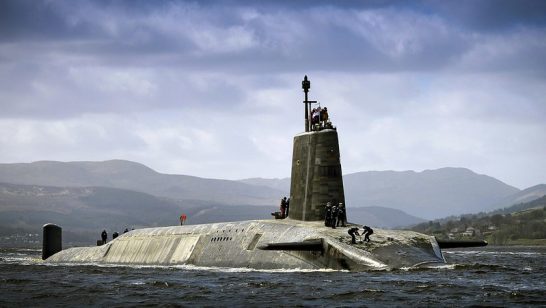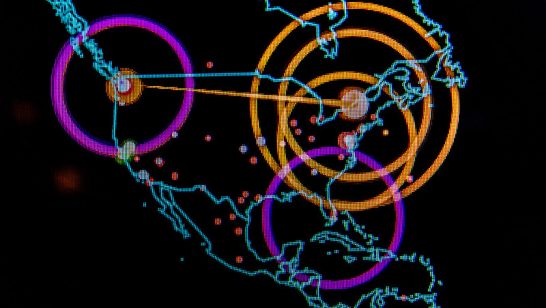
Since late 2016 when ‘Global Britain’ was first mentioned by the then Foreign Secretary Boris Johnson and the then Prime Minister Theresa May, the UK has been on a long and thorny road to define its post-Brexit foreign policy framework, aims and ambitions. However, the reasons behind this ‘Global Britain’ narrative remain unclear.
Observers tend to argue that ‘Global Britain’ is a ‘grand narrative’ and a rare form of ‘grand strategy’ for the UK. Most therefore focus on the “grand”, systemic factors driving it (for instance, Chatham House research paper or the ‘Integrated Review’). My findings based on interviews with former and current British foreign policy officials from different political and academic backgrounds offer more thorough explanations for the introduction of the ‘Global Britain’ narrative. One of the primary explanations is simply Boris Johnson.
The UK is considered to have ‘lost the art of grand strategy’ since 1960s when the country ‘lost an empire but [had] not yet found a role’. With Brexit, a game-changer for UK foreign policy, a new strategy was needed to define the UK’s future outside the EU. Other situational factors were crucial for ‘Global Britain’ to emerge in the context of Brexit, including broader systemic challenges like the rise of China, threat from Russia, the changing role of the US under President Trump, and so on.
Despite the relative importance of these ‘systemic’ as well as various ‘state’ or ‘organisational’ factors (e.g., Brexit, imperial nostalgia, competing governmental bodies, etc.), the key to explaining ‘Global Britain’ lies in one individual decision-maker – Boris Johnson. Most of my interviewees agreed Boris Johnson was the main driving force who authored, narrated, and promoted ‘Global Britain’. Being Foreign Secretary when ‘Global Britain’ emerged in 2016 and Prime Minister when the Integrated Review began to flesh it out, Boris Johnson has been shaping his Global Britain from the start. As BBC reporter Ben Brown said during the G7 Summit, ‘…Johnson’s Britain, or Global Britain as he would say’.
Interestingly, Boris Johnson created ‘Global Britain’ not only by reflecting the shared imperial nostalgia that contributed to Brexit, but more importantly from his desire to emulate Churchill. ‘Global Britain’ has much in common with Churchill’s ‘Three Majestic Circles’ – a foreign policy strategy consisting of three concentric circles of Europe, the United States, and the Commonwealth, with Britain being the crucial link between them. With that in mind, it was telling to see the UK Government’s G7 introductory video ‘New Atlantic Charter’ with the following statement by Johnson: ‘Eighty years ago Churchill and Roosevelt stood together promising a better future. Today President Joe Biden and I do the same’. Just as Joe Biden would indeed like to be the next Roosevelt, the analogies that leaders choose reveal a great deal about their biases, perceptions and models.
Therefore, knowing that there is ‘the Churchill Factor’ (an analogy to Johnson’s 2014 book) in ‘Global Britain’, Western allies can better understand what the next steps of the UK’s foreign policy under Johnson will be.
- Boris Johnson’s ambiguous position towards China is likely to remain as the UK’s primary post-Brexit foreign policy feature. A mix of economic cooperation and ideological confrontation will be on the agenda, reflecting Churchill’s attitudes towards Soviet Union during WW2 and post-WW2 times.
- Recent growing emphasis on British ‘hard power’ and increasing nuclear capabilities is strongly reminiscent of ‘Churchillian’ realism, with its reliance on military, defence, and later nuclear capabilities. Similar to the post-WW2 period, Johnson’s ‘Global Britain’ regards international relations as power relations in which each country’s status depends on its ‘hard power’ capabilities. This implies the UK is likely to continue to walk on the ‘power’ path (e.g., increasing its defence budget further) to be perceived as a global great power.
- The ‘special relationship’ with the US, first coined by Churchill, will continue to be the main priority despite Johnson’s preference not to use this specific term which he thinks makes Britain sound ‘needy and weak’. For both Churchill and Johnson, the US under Truman or Biden is a leader of a liberal international order, and should remain the UK’s strongest ally and wealthiest partner.
- Despite the worsening of UK-EU relations due to Brexit and Covid-19, in the near future the UK will co-operate closely with key European countries. The focus on bilateral relations with individual European countries is reminiscent of the post-WW2 UK policy before the EU came into being.
In any case, these four UK post-Brexit foreign-policy priorities will not last forever. Although the Integrated Review sets out a vision for UK foreign policy up to 2025, Johnson’s highly personalised foreign policy narrative is likely to change with his successor. The next PM will likely to pursue her or his own political ambitions and provide us with a slightly different, her or his ‘Global Britain’.
The opinions articulated above represent the personal views of the author, and do not necessarily reflect the position of the European Leadership Network or any of its members, nor of his employer. The ELN’s aim is to encourage debates that will help develop Europe’s capacity to address the pressing foreign, defence, and security policy challenges of our time.
Image: Flickr, Foreign, Commonwealth & Development Office



